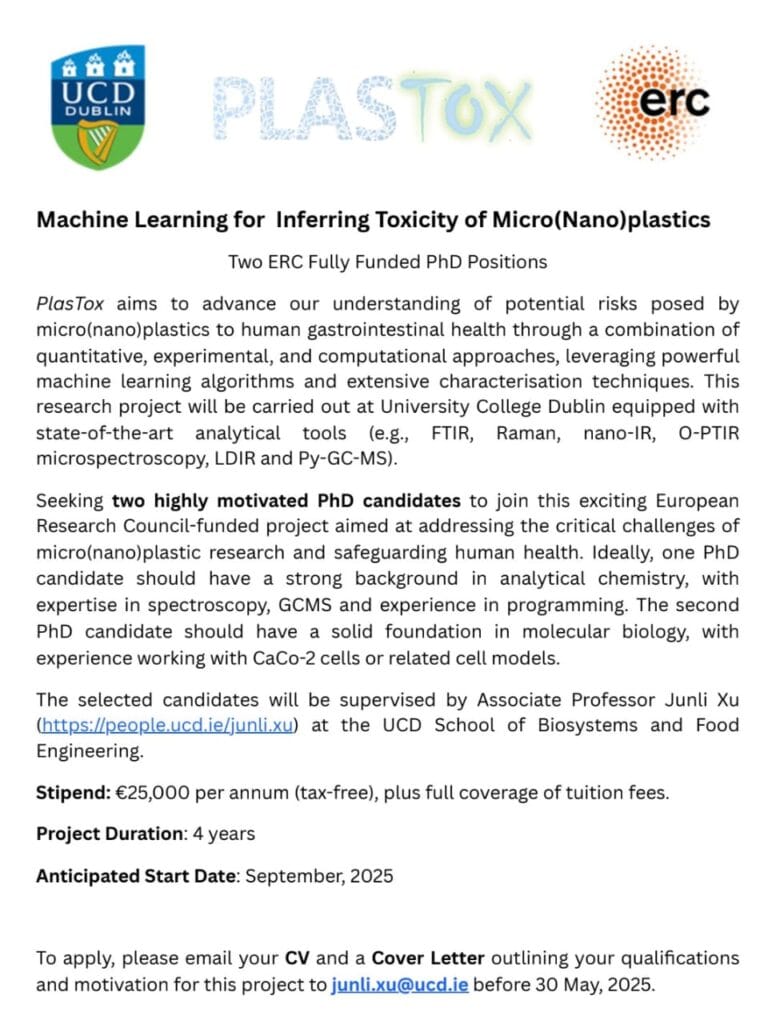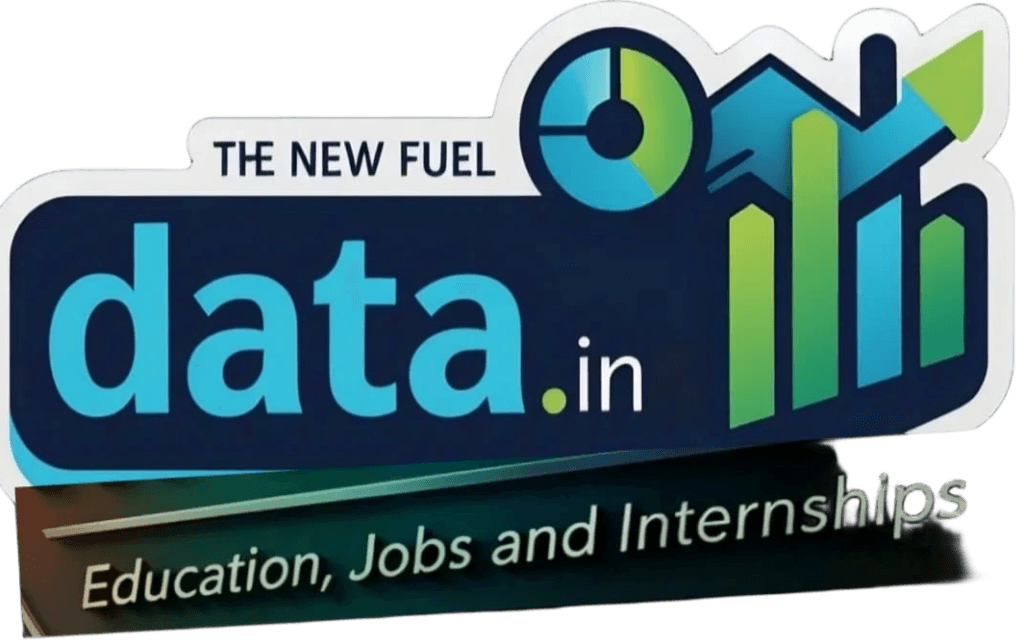🚨 PhD Opportunities – ERC-Funded Research on Micro(nano)plastics & Human Health
Two PhD positions available at UCD School of Biosystems & Food Engineering.
Know someone who might be interested?

Machine Learning for Inferring Toxicity of Micro(Nano)plastics (PlasTox Project)
This research project seeks to understand how micro and nanoplastics (MNPs) potentially impact human gastrointestinal health.
The approach is multidisciplinary, combining:
Quantitative Analysis
Experimental Techniques
Computational Methods
Machine Learning Algorithms
The project is supported by the European Research Council (ERC) and based at University College Dublin (UCD).
—
PhD Opportunities:
Two fully funded positions are available:
Candidate Profiles:
1. Analytical Chemistry Focus:
Strong background in analytical chemistry
Expertise in spectroscopy (FTIR, Raman, etc.)
Experience with Gas Chromatography-Mass Spectrometry (GC-MS)
Programming skills for data analysis and machine learning integration
2. Molecular Biology Focus:
Background in molecular biology
Hands-on experience with CaCo-2 cell models or similar intestinal cell lines
Possibly adept in toxicology, bioassays, and cell-based experimental techniques
Research Infrastructure:
The lab is equipped with cutting-edge analytical tools, including:
FTIR (Fourier Transform Infrared Spectroscopy)
Raman Spectroscopy
nano-IR, O-PTIR microspectroscopy
LDIR
Pyrolysis-GC-MS
These tools support advanced material and chemical characterization, crucial for assessing MNP toxicity.
Supervision:
Supervised by Associate Professor Junli Xu at the UCD School of Biosystems and Food Engineering. Junli Xu specializes in the intersection of biosystems, health, and engineering with strong ties to computational methods.
Website: https://people.ucd.ie/junli.xu
Funding & Duration:
Stipend: €25,000/year (tax-free)
Tuition: Fully covered
Duration: 4 years
Start Date: September 2025
Application Process:
Deadline: 30 May 2025
To Apply: Email a CV and Cover Letter to junli.xu@ucd.ie
Include details of qualifications, motivation, and relevance to the project.
Why This Project Is Important:
Micro(nano)plastic pollution is a growing concern in environmental and health sciences.
This project contributes to toxicological profiling using machine learning, a cutting-edge approach.
Results may influence regulatory policies, food safety measures, and public health initiatives.




